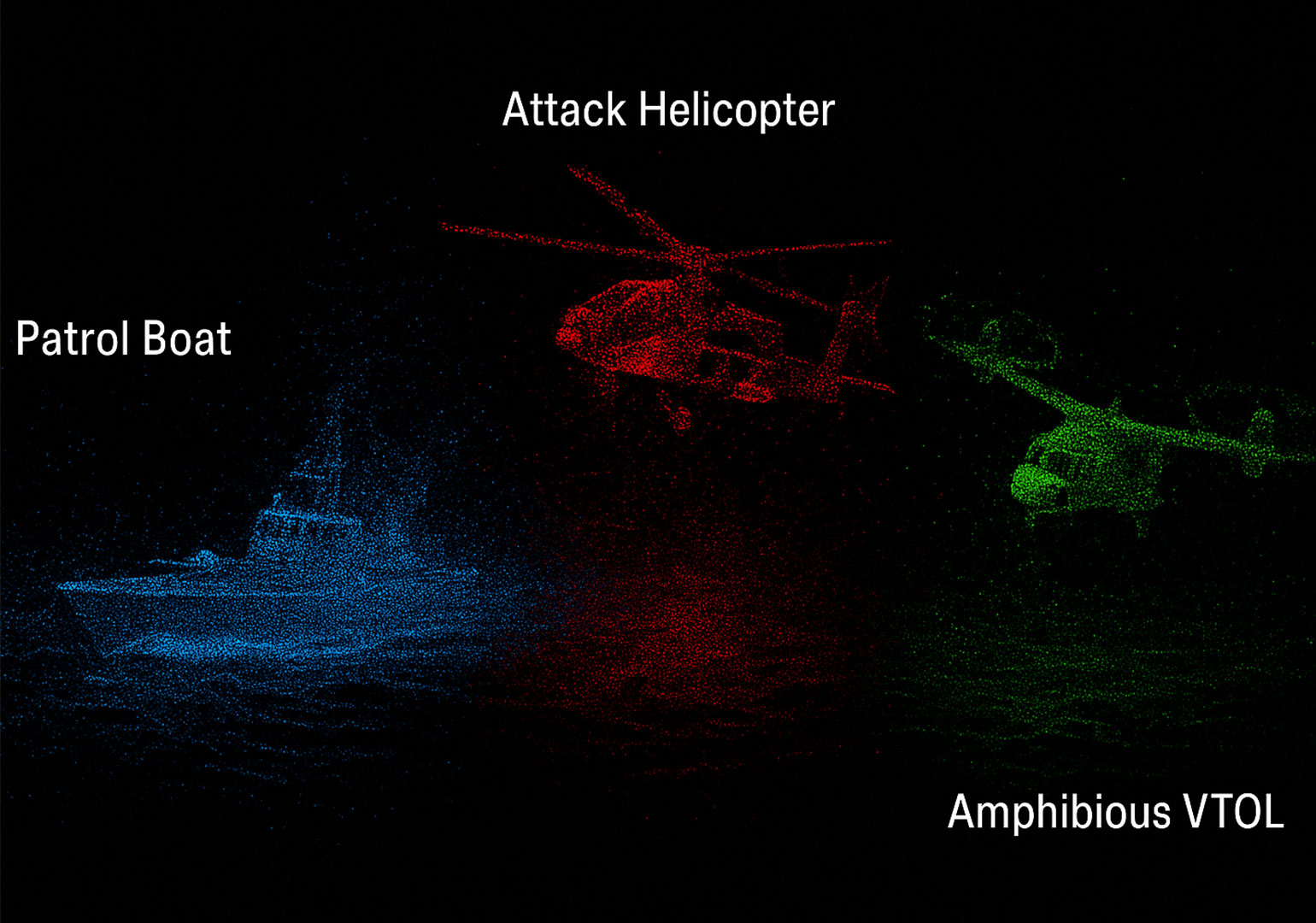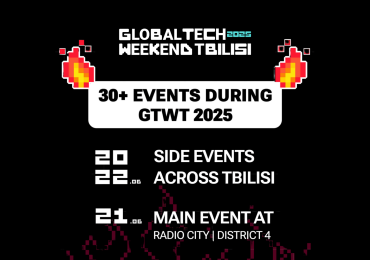Photo Courtesy of Skylark Labs
Skylark Labs has unveiled its groundbreaking self-aware artificial intelligence (AI) that recognizes its knowledge boundaries—a traditionally human-only capability. This innovation fixes a critical flaw where conventional AI misses or misclassifies objects outside its training, often bringing profound security implications.
The AI That Knows When It Doesn’t Know
At Skylark Labs’ Palo Alto headquarters, CEO Dr. Amarjot Singh demonstrates the latest brain-inspired hybrid AI. As maritime surveillance footage appears on a monitor, the system confidently identifies standard vessels and aircraft–patrol boats and attack helicopters. The real breakthrough happens when an unusual amphibious vertical take-off and landing aircraft (VTOL) appears.
“Watch what happens now,” Dr. Singh says. Unlike traditional AI systems, which often misclassify or completely fail to detect unfamiliar objects, Skylark Labs’ proprietary brain-inspired hybrid AI architecture does something different. As a new type of amphibious vertical VTOL appears on screen, the AI doesn’t just guess. Instead, it analyzes the object’s components and explicitly recognizes it as a relevant new vessel, noting its structural similarity to both helicopters and boats.
“What makes conventional AI dangerous in maritime security isn’t just that it fails—it’s that it can fail confidently,” Dr. Singh explains. “A legacy system might label an adversarial drone boat as friendly, or miss it entirely. In contested waters where decisions must be made in seconds, such errors can carry serious national security risks.”
Skylark Labs’ hybrid AI solves this by mimicking how humans reason. Rather than relying solely on prior training, it analyzes the parts and context of new objects. So when it encounters something unfamiliar—like a next-gen drone boat or hybrid aircraft—it doesn’t dismiss it.
Beyond Pattern Recognition: True Machine Self-Awareness.
What makes Skylark Labs’ brain-inspired hybrid AI architecture revolutionary is its metacognitive awareness. When a novel vessel appears, the system doesn’t try to match it as a whole.
Instead, it decomposes the unknown object into primitive features and structural relationships it already understands. This decomposition approach allows the system to recognize novel combinations of familiar elements.
Dr. Singh explains, “For instance, the system might encounter a vessel it has never seen before—like one with rotors and an unusual boat hull. But it reasons: this object has features I’ve seen before—rotors like a helicopter, a hull like a boat—so it must be relevant. By analyzing how these familiar components are arranged in an unfamiliar whole, the AI forms an understanding of entirely new maritime threats that could compromise security. This ability to detect and interpret both known and novel threats makes Skylark Labs’ AI especially well-suited for dynamic, high-stakes environments like maritime defense.”
Skylark Labs’ brain-inspired hybrid AI is self-aware; it knows what it knows, and crucially, what it doesn’t. Unlike traditional systems that confidently misclassify unknowns, it flags unfamiliar inputs as novel but potentially relevant. This allows it to detect emerging threats in real time without retraining, massive datasets, or cloud dependence, making it ideal for fast, high-stakes environments.
Real-World Performance: Never Missing What Matters
This breakthrough self-awareness is delivered through Skylark Labs’ Kepler platform—a plug-and-play system that packages their brain-inspired AI into a deployable solution for diverse security applications.
Kepler includes sophisticated pipelines that detect new threats in real time and suppress the false positives that often plague traditional security systems. When unfamiliar patterns emerge, Kepler intelligently distinguishes between genuine threats and benign anomalies. These pipelines automatically detect new threats, learn them, and strengthen or remove them based on their persistence, all without requiring specialized AI expertise from operators.
Kepler has already been deployed in several real-world cases. In correctional facilities, Kepler’s self-awareness capabilities have transformed how organizations detect contraband.
“Inmates are constantly developing new improvised weapons and smuggling methods that traditional detection systems simply weren’t designed to recognize,” explains Mike Brown, security director at a major state penitentiary.
“Kepler continuously adapts to these evolving threats, identifying unusual objects that don’t match known contraband profiles but still exhibit suspicious characteristics,” she adds. “We’ve seen detection rates for improvised weapons increase by 78% since deployment.”
Aside from correctional facilities, Kepler also has implications in border security. At monitored crossings, Kepler’s ability to identify novel concealment methods has proven invaluable.
In maritime security tests, the hybrid AI architecture identified every legitimate vessel, including novel configurations that conventional systems missed. “What’s revolutionary isn’t just reducing false alarms—it’s never missing vessels that matter,” explains (Ret.) Lieutenant Commander Sarah Chen, a maritime security specialist.
“This on-device learning capability allows the AI to adapt to dynamic environments instantly, making it highly efficient and capable of handling evolving maritime threats.”
The Path to Trustworthy Artificial Intelligence
Skylark Labs’ brain-inspired hybrid AI introduces metacognitive self-awareness—machines that know their knowledge boundaries and act accordingly. This capability is already reshaping real-world operations, ensuring AI systems behave more like seasoned experts than black-box predictors.
Dr. Andrea Soltoggio, Reader in Artificial Intelligence at Loughborough University and DARPA Lifelong Learning Machines researcher, mentions, “By endowing AI with true self-awareness—empowering it to gauge its uncertainty and learn continuously on-device without reliance on massive datasets—we are redefining what autonomous intelligence can achieve. These self-aware systems evolve in real time, reducing dependence on manual interventions and driving safer, more resilient outcomes across industries.”
Skylark Labs’ innovation suggests a future where AI possesses genuine awareness of its uncertainties—a true leap toward more human-like machine intelligence. In contested and dynamic environments, these self-aware systems will transform security operations, driving faster, safer responses when stakes are highest.

















